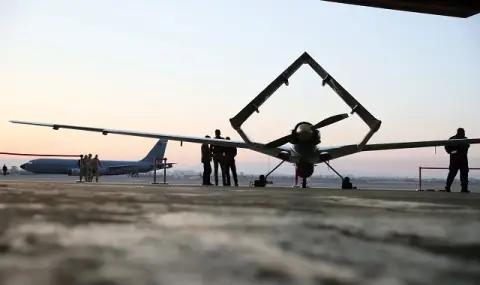Selected Russian military commentators continue to complain of Ukraine's unmanned aerial vehicle superiority and Kiev's electronic warfare (EW) capabilities on the battlefield, continuing to highlight the rapid and constant cycles of tactical and technological innovation that shape Ukraine's battlespace.
This is stated in the daily analysis of the Institute for the Study of War (ISW).
A Russian military blogger noted that Ukraine also has specialized and centralized drone units within existing Ukrainian ground units, allowing Ukrainian forces to better integrate reconnaissance and strike drone capabilities into core tactical maneuvers.< /p>
In contrast, Russian forces lack a centralized and organized system of unmanned units and adequate electronic warfare and electronic intelligence (ER) capabilities to counter Ukrainian drones.
As Ukrainian forces adapt and better integrate new technologies into their forces, Russian forces will likely feel compelled to do the same in order to maintain technological and tactical parity on the battlefield. This race between offense and defense and the scaling of capabilities is fundamental to the development of warfare in modern warfare.
The military blogger emphasizes that the provision of unmanned aerial vehicles and the necessary electronic warfare and electronic intelligence systems to the Russian armed forces is done on a voluntary basis, as there is no centralized delivery mechanism by the Russian Ministry of Defense (MoD).
p>These remarks about the need for Russia to centralize its drone warfare capabilities echo recent calls made by a number of Russian commentators, including the former head of the Russian Space Agency (Roscosmos) Dmitry Rogozin.
Ukraine and its partners have reportedly drafted a document for the World Peace Summit in Switzerland on June 15 calling for future engagement with Russia on a limited number of issues related to Russia's incursion into Ukraine, although The Kremlin remains unwilling to engage in meaningful negotiations on the proposal or any broader settlement of the war in Ukraine.
Russia is waging a large-scale hybrid warfare campaign targeting NATO nations, in parallel with Russia's efforts to increase its conventional military capabilities in preparation for a potential conflict with NATO.
A joint investigation by the Russian opposition student magazine DOXA and the open-source publication Kidmapping highlights the role of the Kremlin-backed Russian Orthodox Church (ROC) in the Russification of Ukrainian children deported to Russia by Russian authorities.
On June 4, Russian President Vladimir Putin appointed the first deputy chairman of the Federation Council and secretary of "United Russia" Andrey Turchak for Acting Governor of the Republic of Altai.
Newly appointed Russian Defense Minister Andrei Belousov allegedly invited select Russian military correspondents and millibloggers to meet with him to co-opt several Russian actors in the information space, prompting limited criticism from a prominent Russian military blogger.
Russian forces have recently advanced near Vovchansk, Siversk and the city of Donetsk.
The Russian military reportedly continues to forcibly send Russian servicemen, including those with serious medical problems, to fight in Ukraine.
Russia continues to make efforts to militarize deported Ukrainian youth and prepare them for future service in the Russian armed forces.
